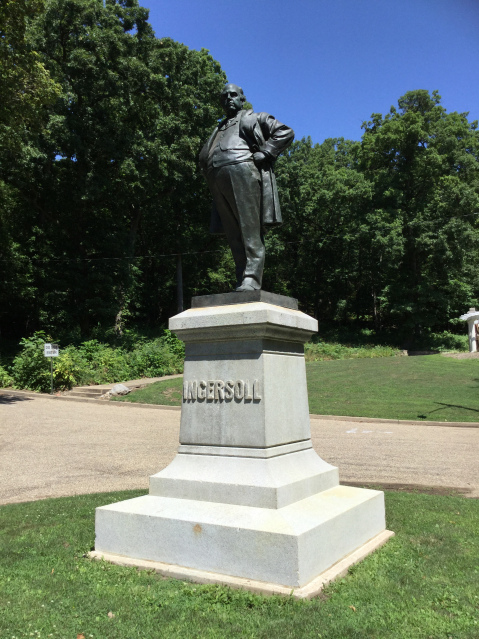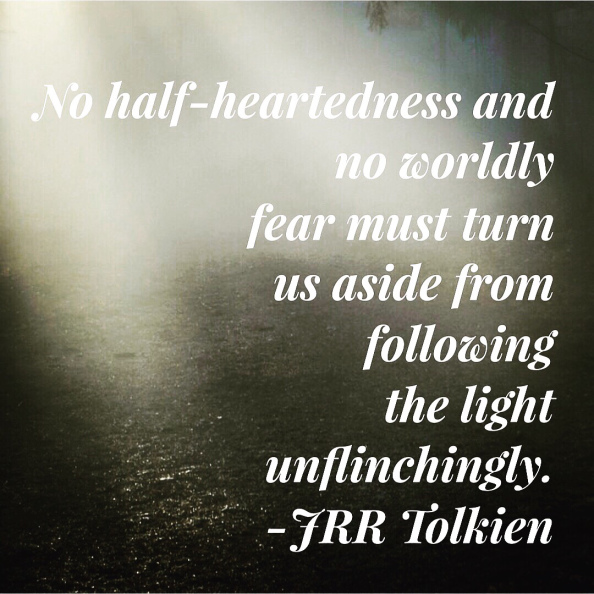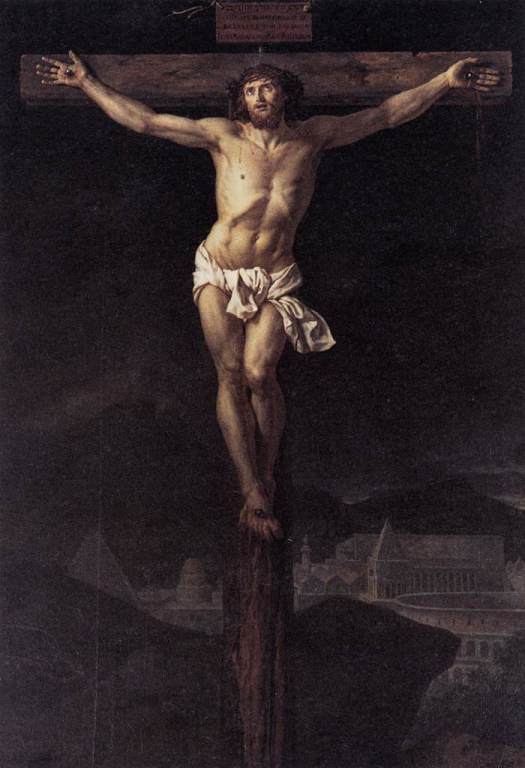
Statue of Robert G. Ingersoll in Glen Oak Park, Peoria, Illinois
Robert G. Ingersoll, orator, lawyer, politician and Civil War veteran often called ‘The Great Agnostic’, was a very famous man in his time but rather forgotten today. He was born on August 11, 1833 and died almost 66 years later. Among other things, he was a vocal and consistent advocate for abolitionism, women’s rights, freethought, and scientific progress. While very liberal and broad-minded, he was a dedicated family man. While his views are as progressive as could be for a person if his time, he was what we might call a square. Besides his unabashed and very public religious skepticism, he lived a life that even Victorian standards would consider altogether blameless, despite frequent attempts to discredit his views through uncovering some hint of scandal.
He was a great friend of many of the era’s most interesting and influential people including Walt Whitman and Thomas Edison, who made two recordings of his voice with his new invention, the audio recorder.
He was also an admirer and promoter of the memory of Thomas Paine. Though Paine was a founding father of the American cause for independence with his great pamphlet Common Sense and other writings, he had long fallen out of favor in American public memory following the publication of The Age of Reason, his diatribe against religious orthodoxy and superstition, as he perceived it.
In the time Ingersoll enjoyed fame as an orator, freethought ideas had become more acceptable as a matter of public discourse. It was still generally unacceptable to be an out-and-out atheist, but even these could become popular speakers if they were eloquent and interesting enough. In fact, they were often considered novel and exciting, and free speech was enjoying one of its heydays in the United States in this period sometimes called The Golden Age of Freethought. This was a time when public speakers provided a very popular form of entertainment. Many of that era’s important thinkers and activists made their living, or much of it, through public speaking: Ingersoll himself, abolitionist and civil rights leader Frederick Douglass, and feminist, atheist, and civil rights activist Ernestine Rose among them. Rose was also a famous orator in her day, pre-dating Ingersoll by almost a generation but like him, eloquent, witty, and a champion of Paine. She generally spoke only of topics related to her social justice causes, but Ingersoll and Douglass, like many famous orators, spoke on a wide range of topics such as Shakespeare (both men were big fans), science, politics, and much more.
In fact, I have a great anecdote to share that involves both Ingersoll and Douglass, but I’ll share it with you very soon in another article or two. Ingersoll is one of the subjects of my current history of ideas travel project, and I have a wealth of notes, photos, and memories to share with you about my recent trip following Ingersoll’s life and ideas in Peoria, IL. As soon as I’m settled in Edinburgh, my new home city for at least the next year, I’ll write it up. I have some great information and stories about Douglass and Abraham Lincoln there, too.
Stay tuned!
Please also see my review of Susan Jacoby’s excellent biography The Great Agnostic: Robert Ingersoll and American Freethought
Ordinary Philosophy and its Traveling Philosophy / History of Ideas series is a labor of love and ad-free, supported by patrons and readers like you. Please offer your support today!
Share this:




